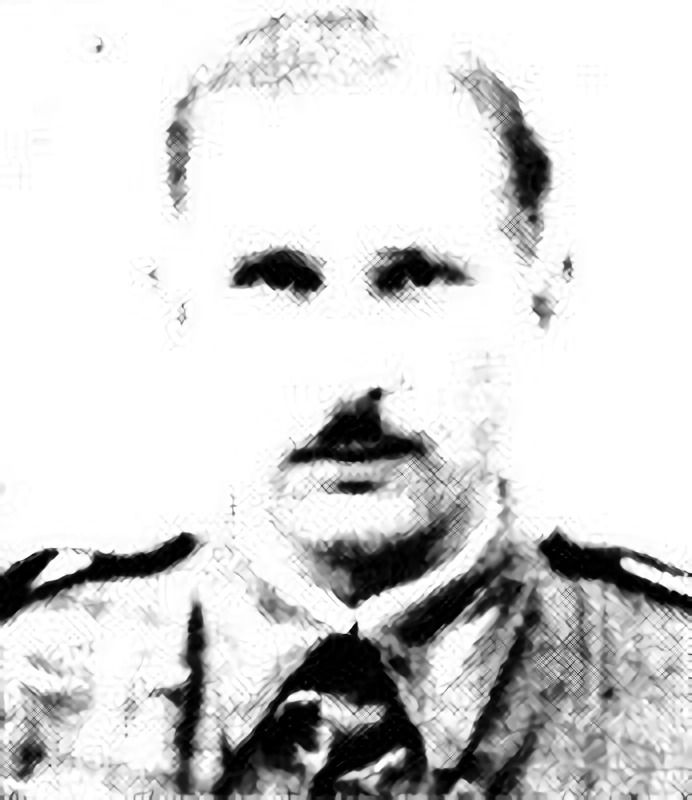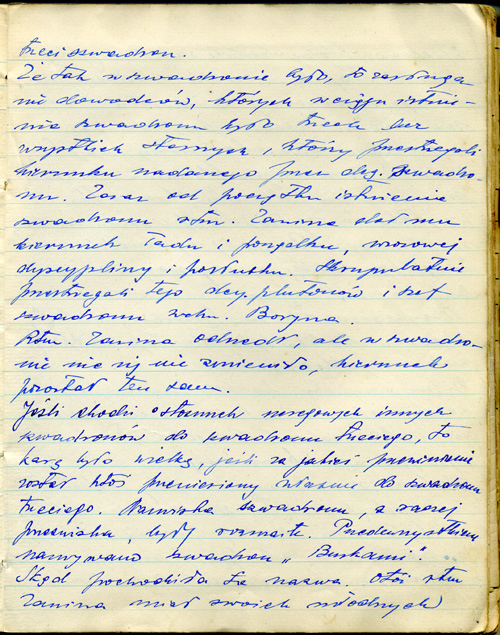This may have been the cause of this passion for the third Squadron.
The high standard of this squadron was not only due to the merits of its three commanders1, but all those who had the privilege of seniority2 and respected the line set by the squadron commander.
From the very beginning of the squadron's existence, Cavalry Captain Zawisza had enforced order and discipline. This was scrupulously followed by the platoon commanders3 and the squadron chief Boryna.
Cavalry Captain Zawisza left4 , but in the squadron nothing changed, the objective of excellence that he had indicated to us remained a priority.
As far as the attitude of the privates from other squadrons towards the third squadron was concerned, it was a great punishment if someone was transferred to the third squadron for some offence. The squadron names, or rather nicknames, were various. First of all, the squadron was called "Burakami"5 .
Where did this nickname come from? Well, Cavalry Captain Zawisza had young officers who kept a close eye on the squadron and watched for any shortcomings.
Kazimierz Duda - Chronicles of War - First half of 1942 - Page 9
1 Lieutenant Kazimierz Duda, Captain Marian Kochanowski, Major Andrzej Szajowski.
2 Seniority - a privilege granted to officers in the Polish army. Seniority distinguished an officer by giving him not only prerogatives in case of war but also a high position in use in society in times of peace.
3 Second Lieutenant Mieczysław Janikowski, Second Lieutenant Tadeusz Walicki, Second Lieutenant Henryk Bogdanowicz.
4 End of July 1942, volunteered to join General Anders' army corps, following disagreements with Colonel Grudzinski.
5 Translator's note: literally "Beets", a pejorative nickname that can be translated in English as "peasant", "redneck".
Translation from French version: Steven Duda

